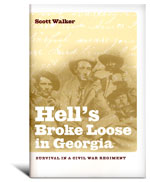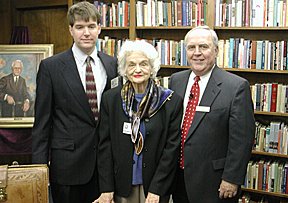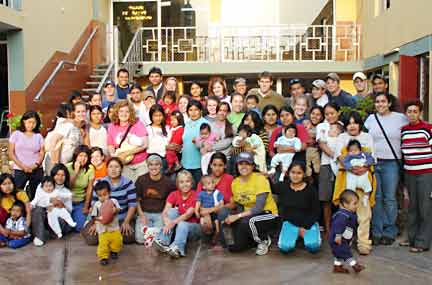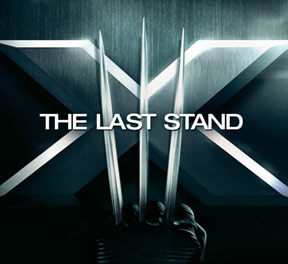2006 Archives
-
Book Reviews
Posted: 7/07/06
Book Reviews
Hell’s Broke Loose in Georgia. Survival in a Civil War Regiment by Scott Walker (University of Georgia Press)
This new book by Scott Walker, pastor of First Baptist Church in Waco, tells the story of the 57th Regiment of Georgia. Walker follows the regiment through the Civil War, beginning with its organization in Savannah in 1862, with more than a passing interest. He is the great-great grandson of one of the regiment’s few members who survived the war.

What are you reading that other Texas Baptists would find helpful? Send suggestions and reviews to books@baptiststandard.com. The book does not offer mere military history. Rather, it presents “family history” of the men who served in the 57th. Through personal letters and journal entries, it vividly describes the human tragedy and personal devastation of war. This may be its chief value.
07/07/2006 - By John Rutledge
-
Baptist Briefs
Posted: 7/07/06
Baptist Briefs
Blackaby resigns from Canadian seminary. Richard Blackaby has resigned as president of Canadian Southern Baptist Seminary to become president of Blackaby Ministries International, an organization founded by his father, Henry Blackaby. Blackaby will continue at the seminary as chancellor, and a presidential search committee named Bob Tucker interim president. Tucker, a professor at the seminary, was interim president before Blackaby’s arrival 13 years ago.
Lotz challenges Baptists to leave Christendom behind. Western Baptists need to leave Christendom behind and become more like the early church, Baptist World Alliance General Secretary Denton Lotz told a BWA dinner held in conjunction with the Cooperative Baptist Fellowship general assembly. Many Westerners still hold a “Christendom-based” model of thinking—characterized by the dominant cultural role played by the Christian church in Western history, particularly in Europe, where national churches were granted privileged status, he said. But Christianity has moved to the southern hemisphere, he noted. “Baptists work best outside of a Christendom model,” Lotz said. As a result, Africa and Asia are on their way to becoming the center of Christianity, he said. And a day will come, he said, when America and Europe will need to be re-evangelized.
07/07/2006 - By John Rutledge
-
-
-
2nd Opinion: Of Jonathan Edwards & McDonaldâs
Posted: 7/07/06
2nd Opinion:
Of Jonathan Edwards & McDonald’sDriving back over the Appalachian Mountains from a family wedding in Canada, we passed Stockbridge, Mass. This town was the lesser-known base of operations for Jonathan Edwards’ missionary labors. More famously, Edwards resided in Northampton, the central location for the dramatic 18th century revivals of the Great Awakening in New England.
As an Edwards aficionado, I was aware of the Edwards/Stockbridge connection. I wasn’t cognizant of the even less-well-known relationship between Edwards and McDonald’s until, as we hurtled by Stockbridge in our minivan, we decided time had come to eat. And behold, we did what surely would have surprised the famous evangelical leader. We picked up a drive-thru McDonald’s.
I wondered whether Edwards and McDonald’s have anything in common. Could it be that the slight guilty feeling as I munched the salty fries was reminiscent of the stellar theological tome Original Sin, penned in Stockbridge? Was our choice to do a drive-thru right there and then predetermined in a classically philosophically charged “freedom of the will” fashion? Or was the can-do spirit of the frontier that surrounded Edwards’ missionary journey represented, albeit somewhat differently, by the can-do franchise dominance of fast-food chains in America?
Whimsical thoughts aside, I also began to wonder how—or whether—Edwards would critique McDonald’s. Could Edwards approvingly have been involved in a “super-size me” Puritan Jeremiad of fast-food, gut-busting obesity issues in the modern West? Or, rather more pointedly, how is it that the Puritan genetic code in the foundation of the country has managed to be expressed in mercantile relations of Big Macs and milkshakes? Was there something in the original theological code that was liable to be taken in such a direction, or has modern life encapsulated the gospel (sanitized it) in gilded-cage commercial enterprises?
07/07/2006 - By John Rutledge
-
DBU students serve Peruvian orphans through Buckner
Posted: 7/07/06
The DBU team gathers for a group photo with children at an orphanage. DBU students serve Peruvian
orphans through BucknerBy Tim Gingrich
Dallas Baptist University
DALLAS—Forty-seven Dallas Baptist University students, faculty and staff started their summer break by spending two weeks serving orphanages in Peru.
Each morning, the volunteers worked on service projects—repainting walls, doing yard work and repairing broken facilities. During the hot afternoon, they played with the children.
07/07/2006 - By John Rutledge
-
DOWN HOME: Itâs summertime; put on your parka
Posted: 7/07/06
DOWN HOME:
It’s summertime; put on your parkaHere’s something that doesn’t make sense to me: Why must we shiver so much in the summertime?
I’m not talking about cataclysmic climatological calamity. The nearest stock tank, swimming pool and/or septic tank isn’t about to freeze up. It’s July in Texas, and you can bet the daytime highs will be somewhere between 90 degrees and the mean temperature of Hades.
But if you decide to shop for groceries, take in a movie or eat out in the summer, pack a parka and put on closed-toed shoes.
The other weekend, Joanna, Molly and I went to see Les Miserables at the Music Hall at Fair Park in Dallas. By the end of the first scene, you could’ve convinced me the French fought the insurrection of 1832 on top of a Greenland glacier. A north gale howled down my back, and I was so cold, I could hardly keep up with the plot. After intermission, Jo convinced me to get under her shawl and scrunch close to Molly, who sat between us. (My wise wife’s learned to layer her clothing, bring a sweater or shawl, and otherwise prepare for indoor frost in the summer. Nothing fazes her anymore.)
07/07/2006 - By John Rutledge
-
EDITORIAL: What difference does it really make?
Posted: 7/07/06
EDITORIAL:
What difference does it really make?After dinner not long ago, a wonderful friend asked a poignant question: “What’s it mean to be a Christian?”
My friend is a lifelong Baptist and a serious Christian. We’ve known each other more than two decades, and we’ve talked often about the challenge of living the Christian life, particularly as parents, in a secular, materialistic community. She wasn’t asking how a person becomes a Christian or what happens after death. She was asking: What difference does it make—or should it make—to be a Christian?
My friend’s question stuck with me. A comprehensive reply could fill many books, but here’s the short version of my answer. I hope and pray it prompts you to think about the difference being a Christian makes in your life.

• Our lives have purpose. We are created, known and called out by God.
07/07/2006 - By John Rutledge
-
-
-
Texas Baptist Forum
Posted: 7/07/06
Texas Baptist Forum
Unity, not division
In his letter excluding female church leaders (June 12), Brian Thompson cited several Scriptures and concluded we must trust in the authority of the Bible. In my entire Baptist experience, I have never been in a Baptist church where women aren’t allowed to talk, teach Sunday school, wear their Sunday best, wear earrings and wedding and engagement rings, wear makeup and have their uncovered hair in the latest styles. Yet with the same scriptural authority that Thompson cites, these practices are problematic.
• Jump to online-only letters below Letters are welcomed. Send them to marvknox@baptiststandard.com; 250 words maximum. 
“A growth-oriented congregation won't shut down for the summer. They can change programs, perhaps, but they need to recognize that church-shoppers expect to see ‘merchandise on display,’ not ‘empty shelves.’ Some churches, in fact, offer more in the summer, not less.”Tom Ehrich
Writer, consultant, workshop leader and Episcopal priest from Durham, N.C. (RNS)“The language of the Declaration (of Independence) marked an important shift in early American history. Prior to Philadelphia and the Revolution, most public professions of faith were Christian, whether the words came from Anglicans in Jamestown or Puritans in New England. In declaring the colonies’ independence from Great Britain, though, the Founders were also making another declaration: That Americans respected the idea of God, understood the universe to be governed by moral and religious forces, and prayed for divine protection against the enemies of this world, but were not interested in establishing yet another earthly government with official ties to a state church.”
Jon Meacham
Managing editor of Newsweek magazine, in his new book, American Gospel: God, the Founding Fathers and the Making of a Nation (RNS)Also, in my reading of these Scriptures, it appears that they are addressing family relationships, not clergy or deacons. Scripture does cite several early female church leaders. More importantly, Jesus communicated clearly in the gospels that men and women, Jew and Gentile, and free and slave were equals in every way. The very first person to proclaim the good news to a group of people was Mary Magdalene, and her authority to do so came as a direct command from Jesus himself.
We as Baptists are congregationalists, and this issue is clearly the prerogative of each congregation. If a person’s cultural and social perspective makes one feel uncomfortable in a church that has female leaders, find another Baptist church more to one’s preference.
07/07/2006 - By John Rutledge















